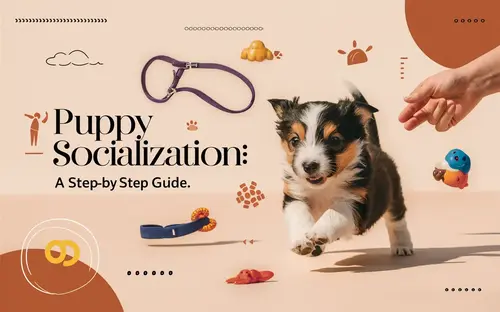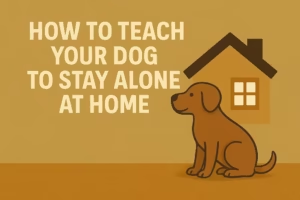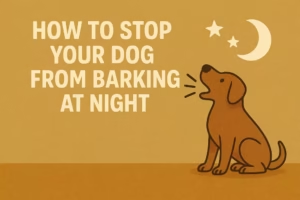Bringing home a puppy is an absolute joy, but it’s also a huge responsibility. One of the most important things you can do for your furry friend is proper socialization. It’s the key to raising a confident, well-behaved, and happy pup. So, get ready to embark on the cutest adventure of your life!
Why Socialization Matters
Socialization is the process of exposing your puppy to different people, animals, environments, and experiences in a positive way. It’s crucial for their development and helps prevent fear, anxiety, and aggression later on.
The Sensitive Period
Did you know that puppies have a “sensitive period” for socialization? It’s a critical window of time, typically between 3 and 12 weeks of age, when they’re most open to new experiences. This is the prime time to socialize your pup, so don’t miss it!
Getting Ready for Socialization
Before you start socializing your puppy, there are a few things you need to do.
Vaccinations
Make sure your puppy has received their initial vaccinations, as recommended by your veterinarian. This will protect them from potential illnesses while exploring the world.
Supplies
Gather the essentials: a well-fitting collar and leash, treats (lots of them!), and a puppy carrier or crate. You’ll also need cleaning supplies for any accidents along the way.
Positive Reinforcement
Familiarize yourself with positive reinforcement techniques, like treats, praise, and play. This will help your puppy associate new experiences with something enjoyable, making the process more effective and enjoyable for both of you.
The Step-by-Step Guide
Ready to dive in? Here’s your step-by-step guide to puppy socialization.
Start at Home
Before venturing out, start socializing your puppy at home. Introduce them to different household sounds, like the vacuum cleaner or TV, as well as different textures and surfaces.
Pro Tip: Pair these new experiences with treats and praise to create positive associations.
Gradually Expand
Once your puppy is comfortable at home, it’s time to expand their horizons. Start by taking short walks around your neighborhood, exposing them to different sights, sounds, and smells.
Be Patient: If your puppy seems overwhelmed, take a break and try again later. Rushing things can backfire.
Meet New People
Introduce your puppy to different types of people – men, women, children, people wearing hats or carrying umbrellas. Encourage them to approach and interact in a calm, positive way.
Ask for Help: Enlist the help of friends and family members to ensure your puppy meets a variety of people.
Socialize with Other Animals
Exposing your puppy to other dogs and even cats (if possible) is essential for learning proper social skills. Look for well-socialized, friendly animals and supervise their interactions closely.
Choose Wisely: Only allow your puppy to interact with animals you know are healthy and have a good temperament.
Explore New Environments
Take your puppy to different places, like parks, pet stores, or even a friend’s house. This will help them become comfortable in various settings and learn how to behave appropriately.
Be Mindful: Always keep your puppy on a leash and under your control in new environments.
Practice Handling
Get your puppy used to being handled and groomed by gently touching their paws, ears, and mouth. This will make future vet visits and grooming sessions much easier.
Reward, Reward, Reward: Offer plenty of praise and treats when your puppy remains calm during handling.
Continued Socialization
Socialization doesn’t stop once your puppy reaches adulthood. It’s an ongoing process that will help them maintain their confidence and good behavior throughout their life.
Continue Exposures
Keep introducing your dog to new people, animals, and environments on a regular basis. This will reinforce their positive associations and prevent them from becoming fearful or aggressive.
Take a Class
Consider enrolling in a puppy training class or obedience school. This will provide a structured environment for continued socialization and help strengthen the bond between you and your pup.
Benefits Galore: Training classes not only socialize your puppy but also teach them essential skills and commands.
Conclusion
Puppy socialization is an exciting and rewarding journey.
By following this step-by-step guide, you’ll be well on your way to raising a confident, well-adjusted furry companion. Remember, patience, positive reinforcement, and consistency are the keys to success.
So, grab those treats, leash up your pup, and get ready for the adventure of a lifetime!
FAQs
Q1: Can I socialize my puppy before they’re fully vaccinated?
A: It’s generally not recommended to socialize your puppy in public areas before they’ve received their initial vaccinations. However, you can start socializing them at home and invite friends and family over to meet your pup in a controlled environment.
Q2: How long should socialization sessions last?
A: It’s best to keep socialization sessions short and positive, especially for young puppies. Aim for 10-15 minutes at a time, and gradually increase the duration as your puppy becomes more comfortable.
Q3: What if my puppy seems scared or overwhelmed during socialization?
A: If your puppy seems scared or overwhelmed, don’t force them into situations they’re not ready for. Take a break, give them some time to recover, and try again later. Pushing too hard can backfire and create negative associations.
Q4: Is it ever too late to socialize a dog?
A: While the sensitive period between 3-12 weeks is the prime time for socialization, it’s never too late to work on it. It may take more time and effort, but proper socialization can still help an older dog overcome fear, anxiety, and aggression.
Q5: Can socialization help with separation anxiety?
A: Yes, socialization can help prevent or reduce separation anxiety in puppies. By exposing them to different environments and experiences, they learn that being away from you isn’t scary or harmful, which can make it easier for them to be left alone as they get older.








